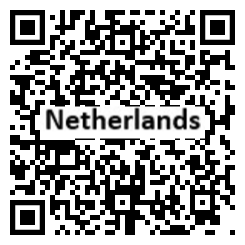Country Summary




Introduction
Background
The Dutch United Provinces declared their independence from Spain in 1579; during the 17th century, they became a leading seafaring and commercial power, with settlements and colonies around the world. After a 20-year French occupation, a Kingdom of the Netherlands was formed in 1815. In 1830, Belgium seceded and formed a separate kingdom.
Geography
Area
total: 41,543 sq km
land: 33,893 sq km
water: 7,650 sq km
Climate
temperate; marine; cool summers and mild winters
Natural resources
natural gas, petroleum, peat, limestone, salt, sand and gravel, arable land
People and Society
Population
17,400,824 (2022 est.)
Ethnic groups
Dutch 75.4%, EU (excluding Dutch) 6.4%, Turkish 2.4%, Moroccan 2.4%, Surinamese 2.1%, Indonesian 2%, other 9.3% (2021 est.)
Languages
Dutch (official); note - Frisian is an official language in Fryslan province; Frisian, Low Saxon, Limburgish, Romani, and Yiddish have protected status under the European Charter for Regional or Minority Languages; Dutch is the official language of the three special municipalities of the Caribbean Netherlands; English is a recognized regional language on Sint Eustatius and Saba; Papiamento is a recognized regional language on Bonaire
Religions
Roman Catholic 20.1%, Protestant 14.8% (includes Dutch Reformed, Protestant Church of The Netherlands, Calvinist), Muslim 5%, other 5.9% (includes Hindu, Buddhist, Jewish), none 54.1% (2019 est.)
Population growth rate
0.36% (2022 est.)
Government
Government type
parliamentary constitutional monarchy; part of the Kingdom of the Netherlands
Capital
name: Amsterdam; note - The Hague is the seat of government
Executive branch
chief of state: King WILLEM-ALEXANDER (since 30 April 2013); Heir Apparent Princess CATHARINA-AMALIA (daughter of King WILLEM-ALEXANDER, born 7 December 2003)
head of government: Prime Minister Mark RUTTE (since 14 October 2010); Deputy Prime Ministers Sigrid KAAG and Wopke HOEKSTRA (since 10 January 2022) and Carola SCHOUTEN (since 26 October 2017); note - Mark RUTTE heads his fourth cabinet
Legislative branch
description: bicameral States General or Staten Generaal consists of:
Senate or Eerste Kamer (75 seats; members indirectly elected by the country's 12 provincial council members by proportional representation vote; members serve 4-year terms)
House of Representatives or Tweede Kamer (150 seats; members directly elected in multi-seat constituencies by open-list proportional representation vote to serve up to 4-year terms)
Economy
Economic overview
high-income European economy; core EU member; chemical, oil, and machinery exporter; some age-based income inequality; substantial amount of independent contractor employees; manageable public debt; key international aid funder.
Real GDP (purchasing power parity)
$945.48 billion (2020 est.)
Real GDP per capita
$54,200 (2020 est.)
Agricultural products
milk, potatoes, sugar beet, pork, onions, wheat, poultry, tomatoes, carrots/turnips, beef
Industries
agroindustries, metal and engineering products, electrical machinery and equipment, chemicals, petroleum, construction, microelectronics, fishing
Exports
$719.78 billion (2020 est.)
Exports - partners
Germany 20%, Belgium 12%, United Kingdom 9%, France 7%, United States 5% (2019)
Exports - commodities
refined petroleum, packaged medicines, broadcasting equipment, photography equipment, computers (2019)
Imports
$622.66 billion (2020 est.)
Imports - partners
Germany 15%, China 11%, Belgium 9%, United States 8%, Russia 7%, United Kingdom 5% (2019)
Imports - commodities
crude petroleum, refined petroleum, broadcasting equipment, computers, cars (2019)
Exchange rates
euros (EUR) per US dollar -
Page last updated: Thursday, August 25, 2022
